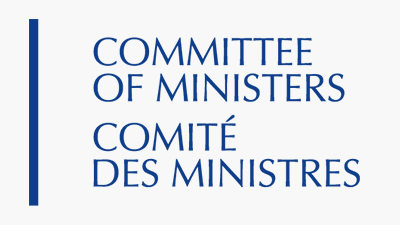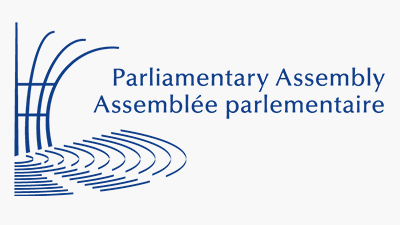Contact Group on Belarus
The Council of Europe was set up to anchor human rights, democracy and respect for the rule of law throughout the whole of the continent. One European country has never been a member - Belarus: but that hasn’t stopped the Council of Europe from reaching out to spread its values there and to bring the country closer to the standards needed for membership.
From 1992 onwards, Belarus signed up to a number of conventions and was included in various Council of Europe projects. This came to a halt in March 2022 after Russia began its full-scale war of aggression against Ukraine and was expelled from the organisation. The next day, the Committee of Ministers decided to suspend all co-operation with the Belarusian authorities too. But work with Belarusian civil society and the democratic forces in exile continues, particularly young people, independent media and human rights defenders. A decision to launch a Council of Europe Contact Group on Cooperation with Belarusian Democratic Forces and Civil Society was taken in September 2022. It met for the first time two months later, and the momentum continued with the adoption of the 2023 Council of Europe Reykjavík Summit Declaration, which underlined the need for co-operation and the commitment to pursue the work of the contact group.
Direct access:
 Priorities
Priorities
The list of activities for 2024-2025, agreed by the Contact Group and supported by the Committee of Ministers in January 2024, foresees online and offline training Belarusian lawyers and human rights defenders on European human rights standards and principles, such as equality and non-discrimination; preparation of awareness-raising initiatives on the abolition of death penalty, participation of representatives of Belarusian democratic forces in part-sessions of the Parliamentary Assembly of the Council of Europe and their involvement in the activities of the Council of Europe’s Congress of Local and Regional Authorities. Further activities for Belarusian journalists, civil society and youth organisations in exile are also planned.
The activities follow the work under the previous 15-point plan for Belarus, launched in February 2023, which set up projects to promote human rights and the rule of law; change attitudes to the death penalty; support journalists in exile, political prisoners, women and discriminated minorities, and strengthen pluralist democracy at national and local level, with an emphasis on involving civil society and young people.
Among the priorities of the Contact Group:
- supporting the development of the rule of law in Belarus by offering study visits for Belarusian lawyers with practice-oriented, one-day workshops on the European Convention on Human Rights and the case law of the European Court of Human Rights;
- working with international journalism organisations and European governments to help journalists in exile counter disinformation and propaganda coming from the Belarusian authorities and giving them the means to work – such as encouraging the easing of visa restrictions, providing political or financial backing, and developing algorithms that can distinguish between propaganda and genuine journalism.
 News and events
News and events
 Who is doing what?
Who is doing what?
Committee of Ministers

The Committee of Ministers has been at the forefront of work to support Belarusian democratic forces and human rights defenders. In September 2022, it invited Secretary General to set up a Contact group to work with representatives from the Belarusian democratic opposition and report back. The aim is to provide Council of Europe support and expertise to strengthen Belarusian democratic society in line with the Organisation’s core values and along the activities for human rights, rule of law and democracy. To this end, the Contact Group ensures a pioneering framework for expert co-operation with Belarusian democratic forces and civil society in unprecedented conditions whereby they operate in exile against the background of ongoing political repressions in Belarus. A plan of activities for 2024-2025 is currently being implemented.
At its 133rd Session, held in Strasbourg on 16-17 May 2024, the Committee of Ministers “invited its Deputies to continue supporting the work of the Contact Group on co-operation with Belarusian democratic forces and civil society, and reiterated the need to find ways to enhance co-operation with Russian and Belarusian human rights defenders, democratic forces, free media and independent civil society who are fully committed to the Organisation’s values, principles and goals, and welcomed the initiatives undertaken in this respect by the Parliamentary Assembly”. In this context, the Ministers’ Deputies hold regular meetings with Ms Sviatlana Tsikhanouskaya and other representatives of Belarusian democratic forces in exile.
Parliamentary Assembly

The Parliamentary Assembly – which brings together parliamentarians from the Council of Europe’s 46 member states – has emphasised its strong support for democratic forces in Belarus, condemned repression by the Lukashenka regime, and demanded the release of political prisoners. The leader of Belarus’s democratic forces Sviatlana Tsikhanouskaya has addressed PACE on several occasions.
In a January 2024 resolution, the Assembly set out wide-ranging proposals to build a democratic future for Belarus, including the creation of a representative delegation of Belarusian democratic forces to the Assembly, which has been invited to participate in its work from the beginning of the 2025 Session. The Assembly has also established a General Rapporteur for a Democratic Belarus.
A June 2023 resolution on Belarusians in exile called for legal and practical steps to ease their stay outside Belarus, and to support Belarusian education and culture outside the country, with concrete actions subsequently developed in 2024 in "The Luxembourg Solutions", with parliamentarians and Belarusian democratic forces, to aid the implementation of this resolution.
The Assembly has also demanded an international tribunal for Belarusian leaders involved in aggression against Ukraine, and urged a total ban on Belarusian athletes taking part in the Paris Olympics. It awarded the Václav Havel Human Rights Prize to Belarusian human rights activist Maria Kalesnikava in 2021, and continues to urge her release.
Congress of Local and Regional Authorities

The Congress, as an active member of the Contact Group, implements activities aimed at promoting democratic values in line with the principles of the European Charter of Local Self-Government. A specific focus is placed on the key role of local authorities to promote and uphold human rights, and engage with women, youth, and under-represented groups.
In November 2023, the Congress gathered in Strasbourg a group of activists from diverse political affiliations, carefully selected with representatives of the Contact Group, for a first peer exchange on the principles and standards needed to establish an efficient local self-government system.
The Congress has been entrusted to implement activities in 2024–2025 focusing on political support to the Belarusian democratic forces and on the provision of capacity development and expertise to support the preparation of reforms and related legislation on local democracy, good governance and decentralisation of power, based on the principles enshrined in the European Charter of Local Self-Government.
In January 2024, Congress members attended the Helsinki Dialogue, and in March 2024, the leader of the Belarusian democratic forces Sviatlana Tsikhanouskaya addressed the Congress at its 46th plenary session.
In late 2024, Congress experts reviewed the “Local Self-Government Concept for a New Belarus” prepared by the Belarusian democratic forces and organised a series of online workshops to discuss about concepts and principles of local self-government, dimensions of decentralisation, and transition stages toward a free and democratic Belarus.
Commissioner for Human Rights

As part of his vital role in protecting human rights defenders, the Council of Europe Commissioner for Human Rights consistently called for support for Belarusian civil society following the suspension of relations with the Belarusian authorities. He stressed the importance of offering them stable residency in host countries, providing social benefits to them and their families, facilitating their work and easing the process of legal registration for new legal bodies. He welcomed the fact that some member states have implemented relocation and protection policies and called on others to follow suit.
Safety of Journalists Platform

 Projects / Highlights
Projects / Highlights
2024
- The “Helsinki Dialogue” event, jointly organised by the Parliamentary Assembly of the Council of Europe and the Parliament of Finland on 11-12 January 2024, fostered discussions on building a democratic future for Belarus.
- Two 3-day training seminars for Belarusian lawyers were organised in cooperation with the CEELI Institute (Prague): the first on the right to a fair trial under the ECHR (3–5 April 2024), and the second on the principle of the rule of law in practice (16–18 October 2024).
- A side event on revitalising democracy in Belarus with and for young people was organised on the margins of the spring part-session of the Parliamentary Assembly on 17 April 2024.
- A training workshop on advancing the abolition of the death penalty in Belarus among Belarusian society, including diaspora, took place in Vilnius, Lithuania, from 30-31 May 2024.
- “The Luxembourg solutions”: a conference at the Luxembourg Parliament on the role of national parliaments in addressing the challenges faced by Belarusians in exile was organised on 6 – 7 June 2024.
- A two-week Liverpool Summer School in the Law of the Council of Europe for Belarusian lawyers was held from 8 to 19 July 2024.
- Representatives of Belarusian civil society took part in peer-to-peer exchanges, within the framework of two regional seminars held in Strasbourg on “Addressing hate speech and hate crime: regional gathering of the network of Equality Bodies from the Western Balkans and the Eastern Partnership Region” (1-2 July 2024) and “Addressing racism and racial discrimination in the context of the EU accession process in the Western Balkans and Eastern Partnership region” (3-4 July 2024), and in a cross-regional conference entitled “Spaces and services to protect LGBTI communities”, held in Sarajevo from 5 to 7 November 2024.
- A study visit was held in Strasbourg on 13-14 November 2024, during which representatives of Belarusian democratic forces and civil society learned about the work of the Council of Europe in the field of gender equality.
- A training series on “European standards on equality and anti-discrimination” was launched during a seminar held in Vilnius on 4-5 December 2024.
- Political dialogue was strengthened through the participation of representatives of Belarusian democratic forces and civil society in the part-sessions of the Parliamentary Assembly and the Congress of Local and Regional Authorities.
- Independent journalists were invited to attend the part-sessions of PACE, the Congress, and the conferences “Confidence in tomorrow” and “Luxembourg Solutions”.
- An agreement was signed on 13 November 2024 in view of the establishment of the Council of Europe Information Point for Belarusian people in Vilnius.
2023
- An online hub on human rights, adapted to the Belarusian context, is now operational, and online training sessions for Belarusian law students are being offered under the Council of Europe Human Rights Education for Legal Professionals programme (HELP).
- Special efforts during the last two years resulted in stronger political contacts with Belarusian democratic forces, who now take part in the Parliamentary Assembly.
- The annual Council of Europe World Forum for Democracy 2023 hosted Belarusian youth activists.
- Workshop “Leaders for change: promoting democracy and human rights at local level”, organised by the Congress of local and regional authorities.
- Two workshops for Belarusian journalists in exile were held in 2023.
 History
History
Belarus has ratified twelve of the Council of Europe’s conventions, including the anti-doping convention, the convention on the recognition of higher education qualifications and the convention against trafficking in human beings. Belarus also participated in various formats in the work of the European Commission for Democracy through Law, known as the Venice Commission, in the Enlarged Partial Agreement on Sport (EPAS) , in the Group of States against Corruption and in the European Pharmacopoeia. This participation has been either stopped or put on hold after 2022.
 Documents
Documents
Committee of Ministers
- Co-operation with Belarus democratic forces and civil society (30 January 2024)
- Relations between the Council of Europe and Belarus - modalities for the participation of Belarus in open conventions (29 September 2022)
- The Council of Europe and Belarus (7 September 2022) (inviting the Secretary General to set up the Contact Group)
- Relations between the Council of Europe and Belarus (17 March 2022) (suspension of relations with the official Minsk)
- Relations between the Council of Europe and Belarus (16 March 2022) (participation of Belarus in the work of the Council of Europe)
- Agreement between the Government of the Republic of Lithuania and the Council of Europe on Co-operation for the establishment of the Council of Europe Information Point for Belarusian People in Vilnius, Lithuania (6 November 2024)
- Reply by the Committee of Ministers to the Parliamentary Assembly Recommendation 2266 (2024) “A democratic future for Belarus” (9 October 2024)
Parliamentary Assembly
- The arbitrary detention of Vladimir Kara-Murza and the systematic persecution of anti-war protesters in the Russian Federation and Belarus (April 2024)
- A democratic future for Belarus (January 2024)
- War of aggression against Ukraine – Participation of Russian and Belarusian athletes in the Paris 2024 Olympics and Paralympics (June 2023)
- Addressing the specific challenges faced by the Belarusians in exile (June 2023)
Congress of local and regional authorities
- Contemporary commentary by the Congress on the explanatory report to the European Charter for Local and Regional Authorities (in Belarusian: Актуальны каментарый Кангрэсу да тлумачальнага даклада па Еўрапейскай хартыі мясцовага самакіравання) (7 December 2020)
Secretary General
- Possible steps to be taken with regard to Belarus’ participation in Council of Europe activities (16 March 2022)
Commissioner for Human Rights documents
- Support Russian and Belarusian civil societies and human rights defenders (Human Rights Comment, 31 August 2022)
Venice Commission
Thematic documents
Violence against women
- Istanbul Convention: Questions and answers (in several languages, including Belarusian)
Youth
- Resolution on the Council of Europe youth sector strategy 2030 (in Belarusian: Рэзалюцыя CM/Res(2020)2 аб стратэгіі моладзевага сектара Савета Еўропы да 2030 года)
Corruption
Trafficking in human beings
Civil society
- Stocktaking of the state of co-operation with the Russian and Belarusian civil society, September 2022
- Recommendation on the legal status of non-governmental organisations in Europe (in Belarusian: Рэкамендацыя CM/Rec(2007)14 Камітэта міністраў дзяржавам-удзельніцам аб прававым статусе няўрадавых арганізацый у Еўропе)
Abolition of the death penalty
- European and World Day against the Death Penalty, 10 October 2024 (including the joint statement in Belarusian)
Helping Belarusians in exile
- “Luxembourg Solutions“: outcomes and perspectives (including a checklist for national parliaments) in English, French and Belarusian
- Guide to Belarus (in English, French and Belarusian)

